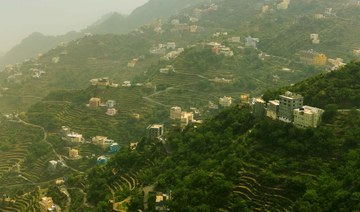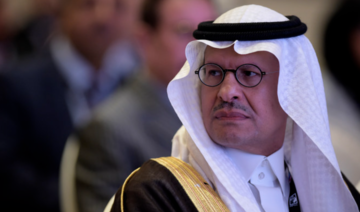RIYADH: Saudi Arabia on Monday announced a roadmap to achieve its ambitious greening target of growing 10 billion trees under the Saudi Green Initiative, according to a press statement.
The SGI’s announcement reflects the Kingdom’s commitment to addressing its environmental challenges and improving its citizens’ quality of life through these planting efforts.
Launched at the Middle East and North Africa Climate Week, the roadmap strategically laid out a plan to achieve the maximum potential cover for the Kingdom’s habitat zones.
According to the press statement, the city centers in the Kingdom will benefit from increased tree canopy cover, which is expected to reduce temperatures by at least 2.2 degrees Celsius and improve air quality.
“Planting 10 billion trees amounts to 1 percent of the global greening target and 20 percent of the Middle East Green Initiative’s afforestation target of planting 50 billion trees across the Middle East,” said SGI.
Saudi Arabia has been spearheading sustainable activities in the MENA region for the past few years, and it launched the SGI to reduce carbon emissions by 278 million tons annually by 2030.
On the other hand, the broader Middle East Green Initiative focuses on eliminating 670 million tons of carbon dioxide equivalent and planting 50 billion trees across the region.
“The roadmap considers zones such as cities, highways and greenbelts to ensure that trees are planted where they can deliver ecosystem services that benefit the health and well-being of Saudi residents, the majority of whom live in urban areas,” added SGI.
The press statement further noted that the green initiative would create jobs in various sectors, including tree growing, seed collection, landscape maintenance and urban water reuse.
“The objective of the study was not only to make the 10 billion target achievable but to incorporate sustainable irrigation methods into the planting process and ensure that the trees and shrubs selected are sympathetic to the Kingdom’s native varieties,” SGI added.
The initiative will implement the roadmap in two phases. The first is to plant 600 million from 2024 to 2030, while the rest will start after 2030.






















